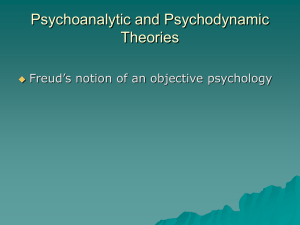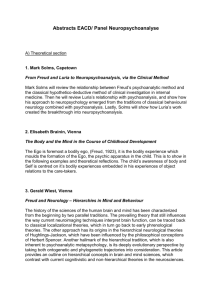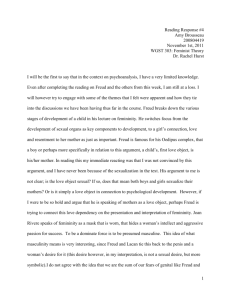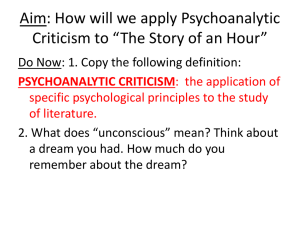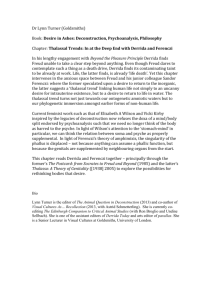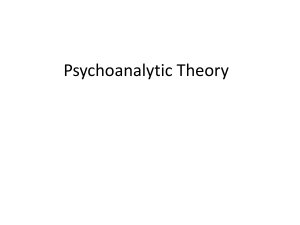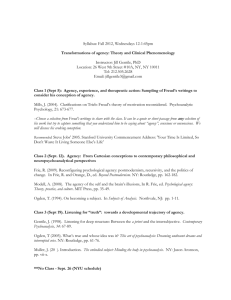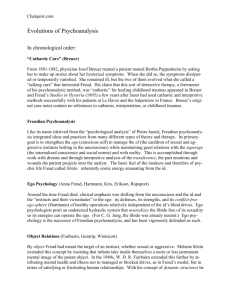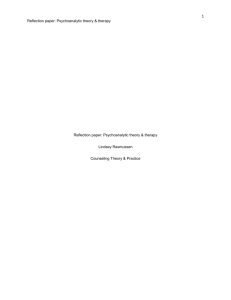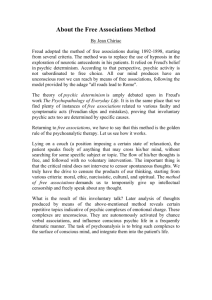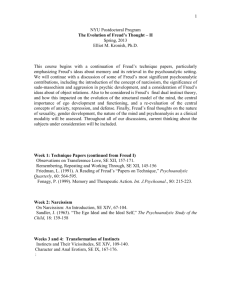Freudian Terms
advertisement
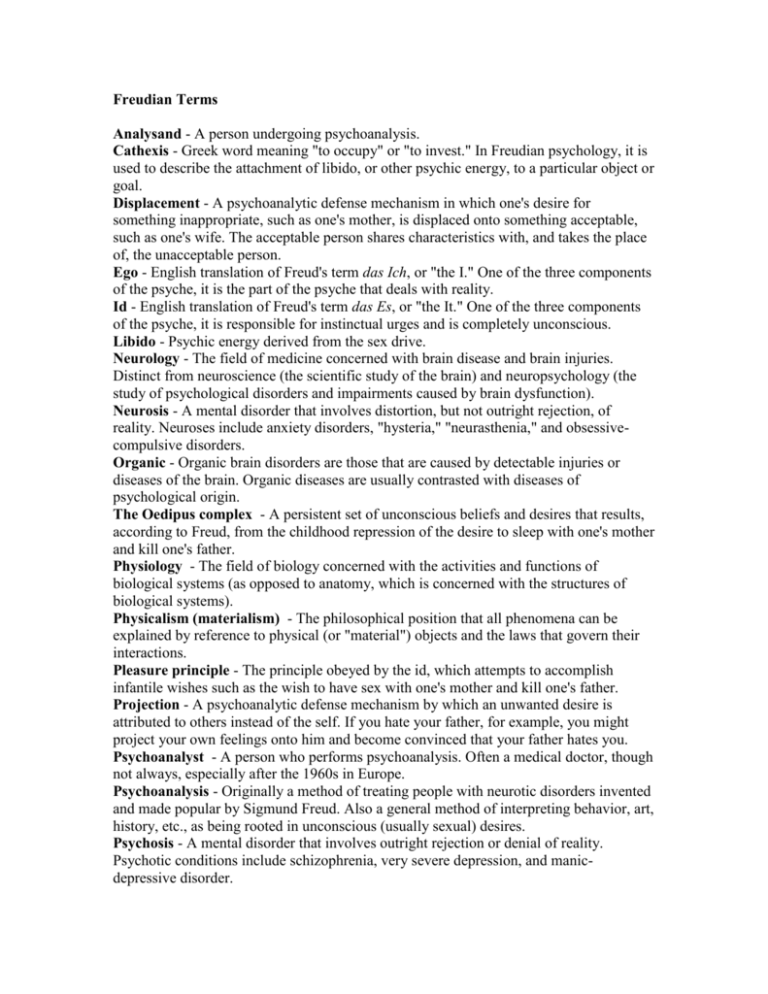
Freudian Terms Analysand - A person undergoing psychoanalysis. Cathexis - Greek word meaning "to occupy" or "to invest." In Freudian psychology, it is used to describe the attachment of libido, or other psychic energy, to a particular object or goal. Displacement - A psychoanalytic defense mechanism in which one's desire for something inappropriate, such as one's mother, is displaced onto something acceptable, such as one's wife. The acceptable person shares characteristics with, and takes the place of, the unacceptable person. Ego - English translation of Freud's term das Ich, or "the I." One of the three components of the psyche, it is the part of the psyche that deals with reality. Id - English translation of Freud's term das Es, or "the It." One of the three components of the psyche, it is responsible for instinctual urges and is completely unconscious. Libido - Psychic energy derived from the sex drive. Neurology - The field of medicine concerned with brain disease and brain injuries. Distinct from neuroscience (the scientific study of the brain) and neuropsychology (the study of psychological disorders and impairments caused by brain dysfunction). Neurosis - A mental disorder that involves distortion, but not outright rejection, of reality. Neuroses include anxiety disorders, "hysteria," "neurasthenia," and obsessivecompulsive disorders. Organic - Organic brain disorders are those that are caused by detectable injuries or diseases of the brain. Organic diseases are usually contrasted with diseases of psychological origin. The Oedipus complex - A persistent set of unconscious beliefs and desires that results, according to Freud, from the childhood repression of the desire to sleep with one's mother and kill one's father. Physiology - The field of biology concerned with the activities and functions of biological systems (as opposed to anatomy, which is concerned with the structures of biological systems). Physicalism (materialism) - The philosophical position that all phenomena can be explained by reference to physical (or "material") objects and the laws that govern their interactions. Pleasure principle - The principle obeyed by the id, which attempts to accomplish infantile wishes such as the wish to have sex with one's mother and kill one's father. Projection - A psychoanalytic defense mechanism by which an unwanted desire is attributed to others instead of the self. If you hate your father, for example, you might project your own feelings onto him and become convinced that your father hates you. Psychoanalyst - A person who performs psychoanalysis. Often a medical doctor, though not always, especially after the 1960s in Europe. Psychoanalysis - Originally a method of treating people with neurotic disorders invented and made popular by Sigmund Freud. Also a general method of interpreting behavior, art, history, etc., as being rooted in unconscious (usually sexual) desires. Psychosis - A mental disorder that involves outright rejection or denial of reality. Psychotic conditions include schizophrenia, very severe depression, and manicdepressive disorder. Reaction formation - A psychoanalytic defense mechanism by which an unwanted desire is converted into its opposite; e.g. a hatred of one's father is converted into a powerful (neurotic) love for him. Reality principle - The principle obeyed by the ego, which attempts to reconcile the id's desires with reality. Repression - The process by which the ego prevents unwanted desires from emerging into consciousness. According to psychoanalysis, partially-successful repression is the cause of neuroticism. Sublimation - The use of psychic energy generated by an unwanted or inappropriate desire, such as the desire to have sex with one's mother, for an acceptable activity such as art, science, good works, etc. Superego - English translation of Freud's term "Über-Ich", or "over-I." One of the three components of the psyche, the super-ego represents internalized social rules. It is partly conscious, and it enforces rules and imposes guilt.
